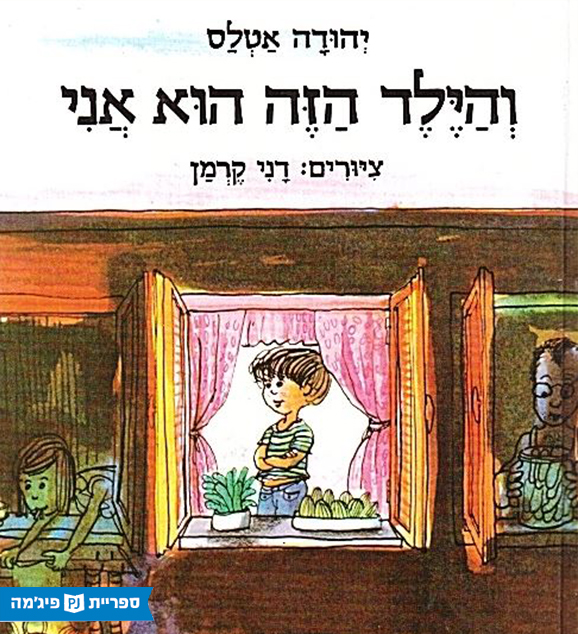Dear Parents,
Dozens of years ago, Yehuda Atlas wrote his book It's Me [Hayeled Haze Hu Ani]. Danni Kerman illustrated it, adding windows to it, that have since become the book's identifying mark. Each window depicts a moment in the life of a child with which we are all familiar: a moment of laughter or yearning, joy and compassion.
The book allows young children to peek at the window and discover that this child is not only me: this child could be your friend, sibling, or parent, or even the child from the kindergarten next door that you've never even met. We all want to be heard, we all get excited when our birthdays are coming up, and we’ve all squashed an orange while trying to peel it. Although people are similar, the sages of the Mishna have described each as a special, unique creation, the likes of which there never was and never will be again:
Therefore a single person is created to teach that man stamps many coins with one seal, and each is like the other […], but [when a person is created,] every person [is stamped] with the seal of Adam and not one of them is like their fellow. [Mishna, Sanhedrin, 4:5]
What makes us similar? And despite our similarities, what makes each of us unique? What makes my friends and me happy? What bothers me, but does not matter to others? What makes me special, and what makes me just like everyone else? It's Me opens a window to this question, enabling us to find the answer ourselves.





